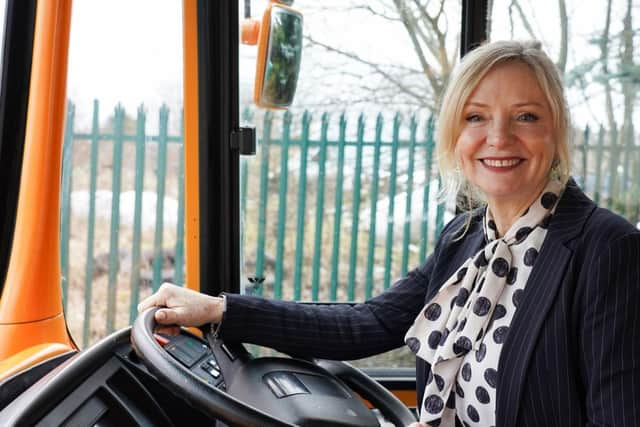West Yorkshire passengers told £2 bus fare cap will be extended until next year
West Yorkshire Combined Authority (WYCA) agreed to hand the money over as part of a deal which means passengers will continue to pay £2 for a single.
However, the £4.50 cap for a day pass will rise to £5 on March 3.
Advertisement
Hide AdAdvertisement
Hide AdThe operators have already been given £33.9m of subsidies to cap fares since September 2022, as part of a scheme known as the ‘Mayor’s Fares’.


West Yorkshire Mayor Tracy Brabin decided the money, which was provided by the government, should be used to lower fares during the cost-of-living crisis and encourage more people to travel by bus.
At a public meeting, Councillor Susan Hinchcliffe, chair of WYCA’s Transport Committee, said struggling operators have also been using some of the money to cover the cost of running “core services”, even though that was “not the intention”.
As part of a separate government-run scheme, operators across the country were capping single fares at £2 in exchange for taxpayer-funded subsidies until November, when the cap rose to £2.50 for one year.
Advertisement
Hide AdAdvertisement
Hide AdIn West Yorkshire, the Mayors Fares scheme is part of WYCA’s £91m Bus Service Improvement Plan. It promises to make services more affordable, more frequent and more reliable.
As part of that plan, £38.9m will be spent on upgrading the bus network and increasing the number of services.
It comes as Ms Brabin is looking to deliver a key election pledge by bringing buses back under public control from 2027, claiming it would make services across the region more reliable and more affordable.
The current plan would see WYCA take full control of the bus network so it can make decisions about routes, services and fares.
Advertisement
Hide AdAdvertisement
Hide AdAfter a public consultation, Ms Brabin said she will review the responses before making a final decision in March.
The Labour mayor, who is standing for re-election this year, is looking to follow in the footsteps of her counterparts in Manchester and Liverpool who have already brought buses back under public control.
She has previously said private operators are “focused on satisfying shareholders” and have driven passengers away in recent years, by running unreliable services and cutting routes which do not generate a significant profit.
They have also become heavily reliant on taxpayer-funded subsidies, which pay for around a fifth of the services they run.
Advertisement
Hide AdAdvertisement
Hide AdHowever, operators have proposed another approach to franchising, which is known as an “enhanced partnership plus”.
The proposal would allow them to continue to run services and work in partnership with WYCA to make decisions about routes, services and fares.